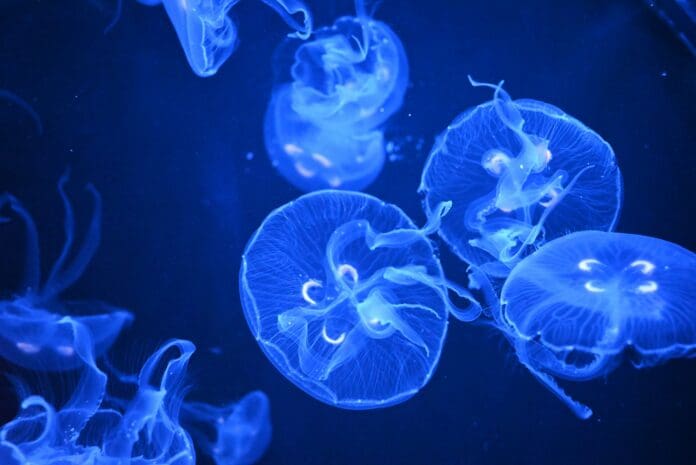This post is also available in:
 עברית (Hebrew)
עברית (Hebrew)
A new approach to ocean monitoring is emerging from research into one of the sea’s most ancient creatures. Engineers from the University of Colorado at Boulder have developed a method to enhance and steer the movement of moon jellyfish (Aurelia aurita), potentially turning them into efficient data collection platforms for deep or remote marine environments.
According to TechXplore, the technique uses microelectronic devices attached to jellyfish to control their swimming direction. These devices stimulate the animal’s natural movement by targeting its existing muscle structure—essentially acting like a pacemaker. This allows researchers to guide jellyfish toward areas of interest, where future versions of the device could be equipped with sensors to collect environmental data such as temperature, pH, and salinity.
Because of their evolutionary simplicity and low metabolic demands, moon jellies are ideal candidates. With no central nervous system or nociceptors (pain-detecting cells), and extremely low energy consumption, they can move through the ocean with minimal disturbance. They have been found at extreme depths—including near the bottom of the Mariana Trench—and are present in waters across the globe.
The biohybrid jellyfish concept was first tested in shallow waters off the U.S. coast in 2020 and continues to evolve. Researchers now aim to improve steering control and integrate lightweight, environmentally safe tracking systems. Biodegradable particles such as corn starch are also being trialed in place of traditional synthetic tracers to map jellyfish-generated water flow in lab studies.
These advancements could support climate research by making long-term ocean monitoring more accessible. Traditional deep-sea exploration relies on costly submersibles and sensors, often limiting the scope and duration of data collection. A swarm of low-cost, self-propelled jellyfish platforms could complement these systems, providing a broader dataset at a fraction of the cost.
Researchers are also examining the ethical considerations of working with invertebrates, a topic often overlooked in marine science. Early indicators suggest the jellyfish remain healthy under study conditions, with no signs of stress such as reduced reproduction.
If successful, this approach could reshape both marine data collection and underwater robotics—using biology not just for inspiration, but as an active part of the system.

























